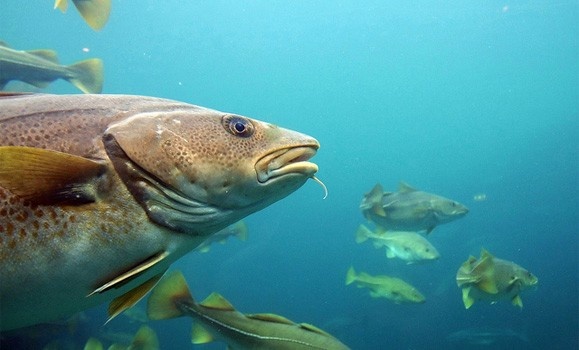Quick, decisive action at the first sign of overfishing.
That is the secret to recovery in ocean populations that have been depleted by overfishing, according to a new study co-authored by Dal biologist Jeff Hutchings.
The paper, published in Science last week, generated international headlines, with many news outlets in Canada focusing on what it suggests for Atlantic cod stocks.
“Here we are, two decades after the greatest numerical loss of a vertebrate in Canadian history, and we’re in a position where stocks are actually declining further, in some cases, and most stocks are remaining stable at very low levels,” says Dr. Hutchings. “Our work provides a means of interpreting that.”
The study has implications far beyond just cod, though. Hutchings and his collaborators looked at more than 150 marine fish and invertebrate stocks worldwide, modeling recovery times for 184 recorded depletion events.
“There’s good news and sobering news,” explains Dr. Hutchings. “It appears that marine fishes, in general, are much more resilient and better able to recover than perhaps we had previously thought. That means that if action is taken to reduce fishing mortality immediately, at the first signs of overfishing, then there’s a very good chance that the population will recover within as short a period of time as 10 years.”
The danger in delay
The more sobering finding is that if action is delayed, or if fishing is allowed to continue at relatively high levels after the depletion has taken place, recovery is much slower — and the uncertainty that a stock will recover at all increases exponentially.
(The study defines recovery as a stock, or population, returning to biomass at maximum sustainable yield, or BMSY: the level at which a population is large enough to produce the maximum catch over the long term without depleting the stock.)
“In the case of severely depleted stocks, such as our cod stocks, we did not take effective action at the first signs of overfishing,” says Dr. Hutchings. “Secondly, we permitted fisheries to take place just a few years after the moratorium in 1992, and those fisheries — even though they were described as small-scale — almost certainly nipped the bud in any recovery that was taking place.”
While he believes mistakes were made 20 years ago, Dr. Hutchings hopes the findings make the case for avoiding such mistakes in the future.
“It should provide a strong scientific incentive for politicians, for fisheries managers, to take meaningful, rapid action to reduce catches at the first signs of overfishing. Politicians often want to delay such action because they fear the loss of jobs in the short term. What our work indicates is that if you take that action right away, though it might be somewhat painful in the short term, in the longer term we’re all better off, including the fishing industry.”
Full study: Resilience and Recovery of Overexploited Marine Populations Science)

